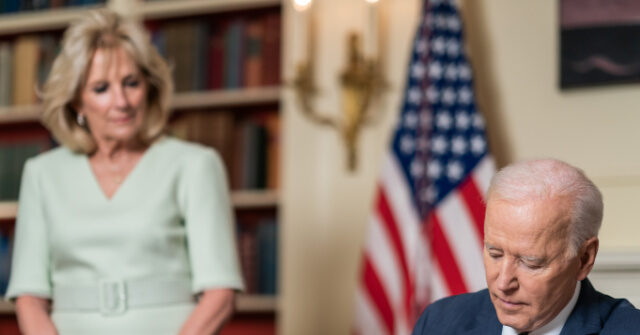During a recent interview with Boston 25, First Lady Jill Biden addressed the controversial pardon of their son, Hunter Biden, by President Joe Biden. She emphasized that the decision followed consultations with numerous legal experts, suggesting that the context surrounding Hunter’s situation had evolved over time, which influenced the President’s choice. This defense indicates that the First Lady believes there were legitimate reasons for the pardon that were grounded in legal and situational considerations.
Host Kerry Kavanaugh engaged Jill Biden in a discussion about the achievements of the Biden administration, prompting her to reflect on whether any accomplishments were not adequately communicated to the American public. In response to a clip highlighting significant successes—including the reopening of schools, managing the pandemic, and the passage of an infrastructure bill—Jill expressed a desire for these accomplishments to be more widely recognized and appreciated. She articulated concerns that public perception might overlook the positive impacts of these initiatives, emphasizing a need for increased visibility of the administration’s work.
When Kavanaugh raised concerns about the potential overshadowing of these accomplishments by Hunter’s pardon, Jill Biden was quick to dismiss the notion that the pardon would detract from her husband’s legacy. She confidently asserted that Joe Biden wrestled with the decision before ultimately arriving at what she believes to be the right course of action. This response underscores her belief in the integrity of the presidential decision-making process and the importance of familial support in times of personal and political strife.
The interaction illuminated the contrasting perspectives on family, legacy, and the presidency, with Jill Biden advocating for her husband’s achievements while simultaneously affirming her support for Hunter. It highlights the complexities of navigating these dual roles as First Lady and mother, particularly in the face of public scrutiny regarding family matters. Jill’s statements reflect a deep-seated familial loyalty while also addressing broader societal concerns about governance and accountability.
Jill Biden’s remarks also point to the broader challenges faced by the Biden administration in communicating its achievements to the public effectively. The First Lady’s acknowledgment of the need for better amplification of their successes suggests a recognition of the changing dynamics of public perception in the media landscape. In an era where political narratives can shift rapidly, Jill’s comments underscore the importance of proactive engagement with the public to ensure their achievements resonate amidst controversies.
In conclusion, while Jill Biden stands firmly behind her husband’s decision to pardon Hunter, she simultaneously advocates for the recognition of the administration’s accomplishments. The conversation addressed key issues of family loyalty, public perception, and political messaging, revealing the difficulties of upholding a positive image while managing personal and familial challenges. Jill’s insights portray a conscious effort to balance these elements, aiming to reinforce the Biden administration’s legacy while supporting her son during a tumultuous time.

